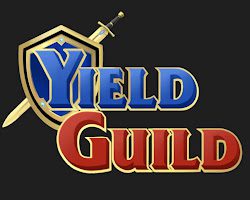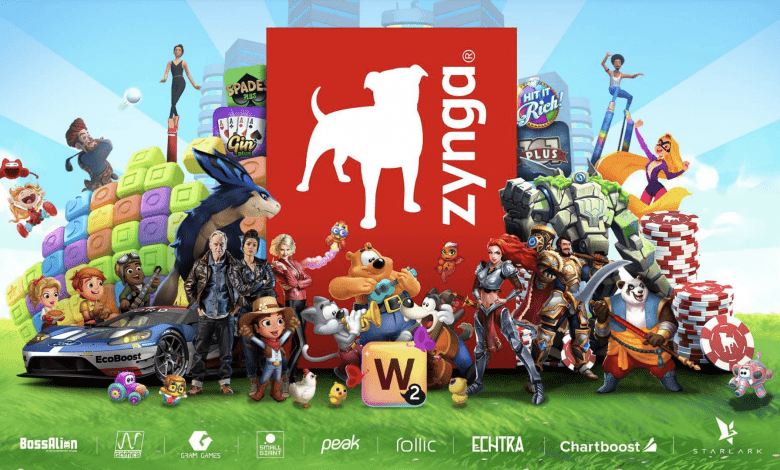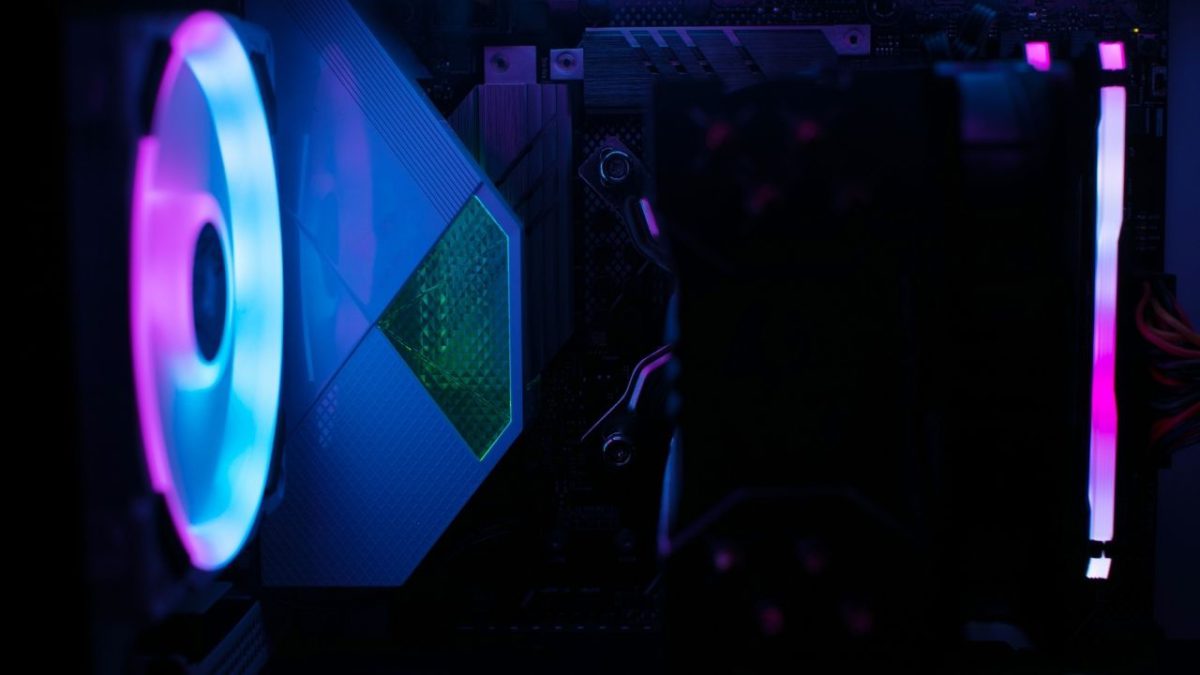Top 5 Blockchain Gaming Companies That Got High Fundings In 2023
Funding is of paramount importance for blockchain gaming companies due to the unique challenges and opportunities presented by the intersection of blockchain technology and the gaming industry. Blockchain gaming companies often operate in a rapidly evolving landscape that demands significant investment in research, development, and innovation. Integrating blockchain into gaming requires expertise in both fields, necessitating financial resources to attract top-tier talent and sustain ongoing technological advancements. Moreover, blockchain gaming offers novel monetization models, such as tokenization of in-game assets and play-to-earn mechanisms, which require initial funding to develop and implement effectively. Securing funding enables these companies to create immersive and decentralized gaming experiences, build robust blockchain infrastructures, and foster communities around their games. Additionally, blockchain gaming’s potential for cross-platform interoperability and ownership of in-game assets creates new revenue streams, making funding crucial for capitalizing on these opportunities. In a competitive market, adequate funding not only drives the development of innovative games but also supports marketing, user acquisition, and community engagement efforts, ultimately leading to the establishment of a successful and sustainable presence in the blockchain gaming ecosystem. Blockchain gaming companies often require funding to support various aspects of their operations, development, and growth. Here’s why they need funding and how they typically use it:
- Technology Development: Blockchain gaming involves integrating complex technologies like blockchain, smart contracts, and decentralized systems. Developing and maintaining these technologies requires skilled developers, engineers, and blockchain experts. Funding is necessary to cover their salaries, research, and development costs.
- Game Development: Creating a game, whether blockchain-based or traditional, requires a significant investment. Funding is used for designing game mechanics, artwork, user interfaces, animations, sound design, and overall game development. Blockchain games might also require additional development for integrating blockchain features like asset ownership, tokenization, and in-game economies.
- Blockchain Integration: Integrating blockchain into gaming platforms involves developing smart contracts, creating NFTs (Non-Fungible Tokens), and implementing token economies. Funding is necessary to support the technical aspects of blockchain integration and ensure the security and scalability of these systems.
- Marketing and Promotion: Like any other business, blockchain gaming companies need to attract players to their games. Funding is used for marketing campaigns, social media promotion, influencer collaborations, and partnerships to increase awareness and drive user adoption.
- User Acquisition: Acquiring a user base is crucial for the success of any gaming company. Funding is used to implement strategies that attract new players, such as offering incentives, rewards, and giveaways. This helps build a community around the game and encourages word-of-mouth marketing.
- Community Engagement: Building a strong community is essential for sustaining a blockchain game’s ecosystem. Funding is used to support community managers, moderators, and events that keep players engaged, answer their questions, and gather feedback for game improvements.
- Operational Costs: Running a gaming company involves various operational expenses, including office space, utilities, legal fees, administrative costs, and more. Funding helps cover these ongoing expenses.
- Quality Assurance and Testing: Rigorous testing and quality assurance are critical to ensuring a smooth and enjoyable gaming experience. Funding is allocated for testing across different devices, platforms, and network conditions to identify and fix bugs, glitches, and performance issues.
- Partnerships and Collaborations: Collaborations with other gaming companies, blockchain projects, and tech partners can enhance a blockchain game’s features and visibility. Funding supports the negotiation and implementation of such partnerships.
- Scalability and Future Development: As a blockchain game gains popularity, the company may need to scale its infrastructure to handle increased user traffic. Funding is used to invest in servers, cloud computing resources, and other technologies to support a growing player base.
- Regulatory Compliance: Blockchain gaming companies need to comply with various legal and regulatory requirements, which might include licenses, intellectual property protection, and tax obligations. Funding helps cover legal fees and compliance costs.
- Innovation and Research: To stay competitive and relevant, blockchain gaming companies invest in ongoing innovation. Funding supports research into new gaming concepts, mechanics, and technologies that can set their games apart from others in the market.
Funding is crucial for blockchain gaming companies to bring their ideas to life, develop innovative games, integrate blockchain features, attract players, and sustain their operations. The complex nature of both gaming and blockchain technology makes securing funding essential for achieving success in this rapidly evolving industry.
Also, read – THE TOP 5 BLOCKCHAIN GAMING COMPANIES IN 2022
Top 5 Blockchain gaming companies that got high funding in 2023
Axie Infinity: Axie Infinity has gained immense popularity as a blockchain-based game that combines elements of collection, breeding, and battling of digital creatures known as Axies. The game has created a thriving ecosystem with a player-driven economy. In 2023, Axie Infinity made headlines by raising an impressive $150 million in funding. This funding round was led by prominent investors including Animoca Brands and Binance Labs, signifying the industry’s strong confidence in the game’s potential. The substantial funding will likely be utilized to further develop the game, enhance user experiences, expand the Axie community, and potentially explore new avenues within the blockchain gaming space.

The Sandbox: The Sandbox is a metaverse that empowers players to create, own, and monetize their virtual experiences using blockchain technology. With its focus on creative freedom, The Sandbox has attracted a large and engaged user base. The company made waves in 2023 when it secured $93 million in funding. This funding infusion, supported by investors such as SoftBank and Square Enix, signifies the growing recognition of blockchain-based metaverses and their potential impact on the future of entertainment. The funds are likely to be channeled into refining the metaverse’s features, expanding its user base, and accelerating its development roadmap.
Decentraland: Decentraland is a pioneering blockchain-based metaverse that allows users to own, build on, and monetize virtual land parcels. The game’s open-ended nature and emphasis on user-generated content have contributed to its popularity. In 2023, Decentraland secured $26 million in funding from investors such as Animoca Brands and Galaxy Digital. This funding injection underscores the continued interest in virtual worlds and the importance of player ownership in the evolving gaming landscape. The funds obtained are likely to be allocated toward enhancing platform functionality, advancing virtual real estate development, and fostering community engagement.

Sorare: Sorare has captured the imagination of football enthusiasts and blockchain enthusiasts alike with its fantasy football game, where players collect and trade blockchain-based digital cards featuring real-world football players. The game’s innovative approach to combining fantasy sports with blockchain technology has garnered significant attention. In 2023, Sorare achieved a remarkable milestone by raising a substantial $680 million in funding. Backed by investors including SoftBank and ConsenSys, this funding round reflects the growing interest in blockchain-enabled sports experiences. The raised funds will likely be utilized to expand partnerships with football clubs, enhance gameplay features, and reach a wider global audience.

Yield Guild Games (YGG): Yield Guild Games has established itself as a prominent decentralized autonomous organization (DAO) focused on investing in and managing blockchain games. YGG’s approach involves investing in virtual assets within games to generate income for its members. Notably, YGG raised over $400 million in funding through its DAO structure. This success highlights the rising trend of decentralized finance (DeFi) applications in the gaming sector. The funding received is expected to be distributed across a diversified portfolio of blockchain games, further cementing YGG’s role in supporting the growth of the broader blockchain gaming ecosystem.

These blockchain gaming companies have secured substantial funding in 2023, showcasing the increasing recognition of the potential of blockchain technology within the gaming industry. The funds acquired will likely be strategically used to develop and refine their respective games, enhance user experiences, strengthen their communities, and explore new opportunities in the ever-evolving landscape of blockchain gaming.
1️⃣ Blockchain Gaming in 2023 and Beyond:
The growth of #blockchain gaming makes it easier for players and community developers to ensure gaming transparency. Steady influx of #funding has made this revolution in gaming possible.
2️⃣Growth in Numbers:
✅2023 estimates put… pic.twitter.com/1hV3w2Nvux
— Playota (@playotaapp) August 14, 2023
How do blockchain gaming companies use the funding to fight future risks?
Blockchain gaming companies can use funding strategically to mitigate future risks and ensure the long-term success of their projects. Here’s how they can allocate funding to address potential challenges:
- Security Enhancements: A major concern in blockchain gaming is security, as players’ assets are often stored as NFTs on the blockchain. Funding can be directed toward improving the security infrastructure, conducting regular security audits, and implementing measures to prevent hacking and unauthorized access.
- Risk Assessment and Management: Companies can allocate funding to hire risk management experts who can identify potential risks, assess their impact, and devise strategies to mitigate them. This could involve creating contingency plans for various scenarios, such as sudden drops in the value of in-game assets or regulatory changes.
- Regulatory Compliance: Regulatory uncertainty is a risk in the blockchain and gaming space. Funding can be used to engage legal experts who can navigate the complex regulatory landscape and ensure that the company’s operations and game mechanics remain compliant with evolving laws.
- Continued Innovation: Blockchain technology and gaming are rapidly evolving fields. Funding can support ongoing research and development to stay ahead of emerging trends, technologies, and market demands. This ensures that the company can adapt to changes and maintain a competitive edge.
- Market Analysis: Funding can be used to gather market intelligence and conduct thorough analyses of player behavior, market trends, and competitor activities. This information can help companies make informed decisions and anticipate shifts in player preferences.
- Diversification and Adaptability: To mitigate the risk of over-reliance on a single game or feature, companies can use funding to diversify their offerings. This might involve developing multiple games, exploring different genres, or incorporating various blockchain features.
- Collaborations and Partnerships: Collaborations with other blockchain projects, gaming companies, or tech providers can help spread risks and leverage each other’s strengths. Funding can facilitate the negotiation and implementation of strategic partnerships.
- Community Engagement and Communication: Building a loyal player community is a key defense against future risks. Funding can be directed toward community engagement efforts, transparent communication about changes, and incorporating player feedback into development plans.
- Reserves for Economic Stability: Economic volatility can impact the value of in-game assets and tokens. Companies can allocate a portion of their funding to establish reserves that can be used to stabilize the in-game economy during periods of market turbulence.
- Education and Training: Risks related to user behavior and education can be mitigated through funding initiatives that educate players about best practices for security, asset management, and safe gameplay.
- Scenario Planning: Funding can be dedicated to creating and simulating various scenarios, helping the company prepare for unexpected events and develop strategies to navigate them effectively.
- Long-Term Sustainability: Instead of spending all funding upfront, companies can use a portion of it to establish a sustainable financial strategy. This could involve setting aside funds for ongoing operational expenses and future development, ensuring the company’s stability over time.
In conclusion, blockchain gaming companies can strategically allocate funding to tackle potential future risks by enhancing security, staying compliant, fostering innovation, diversifying their offerings, building strong communities, and planning for various scenarios. By actively addressing these risks, companies can position themselves for long-term success in the ever-evolving blockchain gaming landscape.
Stay informed with daily updates from Blockchain Magazine on Google News. Click here to follow us and mark as favorite: [Blockchain Magazine on Google News].
Get Blockchain Insights In Inbox
Stay ahead of the curve with expert analysis and market updates.
latest from tech
Disclaimer: Any post shared by a third-party agency are sponsored and Blockchain Magazine has no views on any such posts. The views and opinions expressed in this post are those of the clients and do not necessarily reflect the official policy or position of Blockchain Magazine. The information provided in this post is for informational purposes only and should not be considered as financial, investment, or professional advice. Blockchain Magazine does not endorse or promote any specific products, services, or companies mentioned in this posts. Readers are encouraged to conduct their own research and consult with a qualified professional before making any financial decisions. The featured image used is just a creative depiction of the title and it does not intend to hurt sentiments of any person or institution. If it hurts anyone sentiments, please do not hesitate to reach out to Blockchain Magazine.

 Bitcoin
Bitcoin  Ethereum
Ethereum  XRP
XRP  Tether
Tether  Solana
Solana  Dogecoin
Dogecoin  USDC
USDC  Cardano
Cardano  Lido Staked Ether
Lido Staked Ether  TRON
TRON  Chainlink
Chainlink  Avalanche
Avalanche  Wrapped stETH
Wrapped stETH  Stellar
Stellar  Wrapped Bitcoin
Wrapped Bitcoin  Sui
Sui  Hedera
Hedera  Toncoin
Toncoin  Shiba Inu
Shiba Inu  WETH
WETH  Polkadot
Polkadot  Parkcoin
Parkcoin  LEO Token
LEO Token  Litecoin
Litecoin  Bitcoin Cash
Bitcoin Cash  Bitget Token
Bitget Token  Uniswap
Uniswap  Official Trump
Official Trump  Hyperliquid
Hyperliquid  Wrapped eETH
Wrapped eETH  Pepe
Pepe  USDS
USDS  NEAR Protocol
NEAR Protocol  Ethena USDe
Ethena USDe  Aave
Aave  Aptos
Aptos  Internet Computer
Internet Computer  Ondo
Ondo  Monero
Monero  Ethereum Classic
Ethereum Classic  POL (ex-MATIC)
POL (ex-MATIC)  Algorand
Algorand  Cronos
Cronos  OKB
OKB  Dai
Dai  Render
Render  MANTRA
MANTRA 




